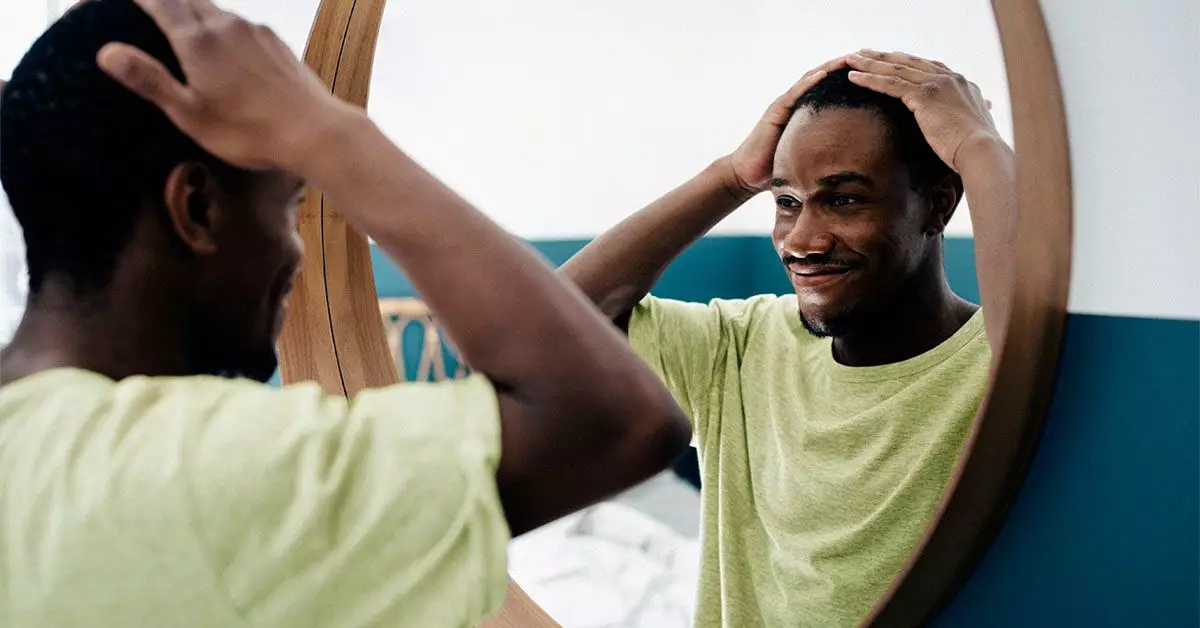Looksmaxxing, an emerging online trend, has gained popularity among young men seeking to enhance their physical appearance to conform to societal beauty standards. From simple beauty routines to invasive cosmetic surgeries, looksmaxxing encompasses a wide range of practices aimed at altering one’s looks in the pursuit of perceived perfection.
While looksmaxxing may seem like a harmless pursuit of self-improvement, the trend has raised concerns about its impact on mental health. Research indicates a significant increase in mental health issues among young people, with body image dissatisfaction and low self-esteem being key factors leading individuals to consider looksmaxxing. The desire to change one’s physical appearance to alleviate negative feelings towards oneself may ultimately have detrimental effects on mental well-being.
The surge in men undergoing cosmetic procedures in recent years highlights the growing influence of looksmaxxing on beauty standards. Studies suggest a correlation between mental health issues, such as body dysmorphic disorder, and the decision to undergo cosmetic surgery as a means of achieving the desired aesthetic. However, the accessibility of looksmaxxing content online may inadvertently perpetuate unrealistic beauty ideals and exacerbate existing insecurities.
With the proliferation of looksmaxxing content on social media platforms, young men may find themselves constantly comparing their appearance to others and internalizing unattainable beauty standards. The pressure to conform to these standards, fueled by excessive exposure to looksmaxxing content, can have a profound impact on self-esteem and overall well-being. Researchers suggest that prolonged engagement with social media may contribute to body dissatisfaction and mental health issues among young people.
Notably, looksmaxxing has origins in and links to the incel community, a group characterized by feelings of entitlement to romantic or sexual relationships. The association between looksmaxxing and the incel community raises concerns about exposure to misogynistic and violent ideologies through online forums. Individuals engaging with looksmaxxing content may inadvertently come across extremist views, further exacerbating mental health issues and negative body image perceptions.
The pressures to conform to societal beauty norms are not exclusive to women, as men also face significant challenges in achieving idealized physical appearances. Research suggests that body image pressures inherent in social media platforms equally affect both genders, albeit with men being less vocal about their struggles. The pervasive influence of societal beauty expectations can contribute to feelings of inadequacy and perpetuate harmful behaviors such as looksmaxxing.
It is crucial for individuals experiencing negative impacts from looksmaxxing to seek professional help. Symptoms of mental health issues related to body image dissatisfaction and low self-esteem should not be ignored. Healthcare professionals can provide guidance on healthy lifestyle modifications and offer support in addressing underlying issues contributing to unhealthy beauty standards. Open communication with a healthcare provider is essential in addressing concerns related to looksmaxxing and mental well-being.
While looksmaxxing may initially appear as a harmless self-enhancement practice, its implications on mental health and well-being cannot be overlooked. The intersection of societal beauty expectations, social media influence, and the incel community poses significant risks to individuals engaging in looksmaxxing. As the trend continues to gain traction, it is imperative to address the underlying issues driving the pursuit of unrealistic beauty standards and prioritize mental health in the quest for self-improvement.

